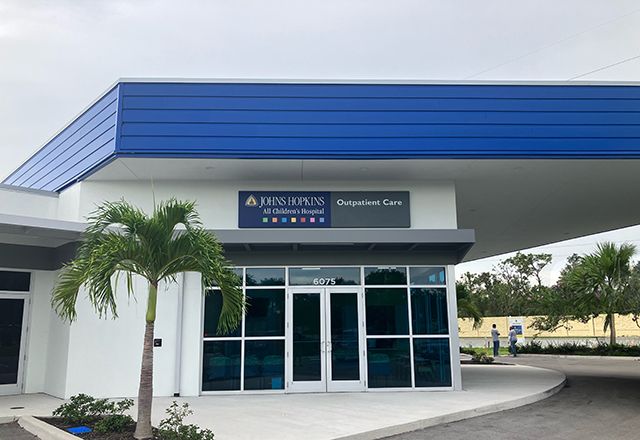Our team specializes in pediatric diagnostic imaging, providing each child with the safest, most appropriate imaging methods that address his or her individual needs.
We provide a range of radiology procedures for children of all ages. We use methods including X-rays, interventional radiology, CT scans, ultrasounds, MRIs, fluoroscopy and nuclear medicine tests to diagnose and often treat a variety of medical conditions.
Our team is specially trained to work with children and has the knowledge and experience to provide safe, accurate and timely test results for you and your child. The team includes pediatric radiologists, interventional radiologists, neuroradiologists, nuclear medicine physicians, nurses, and technologists.
All of our equipment has been adapted for children. We strive for accurate and prompt diagnostic interpretation, cost-effective and expert therapeutic intervention, and the development of innovative techniques in pediatric radiology.
Request Form for Radiology Services
The Radiology Request Form can be used by the referring provider to order imaging studies at the Johns Hopkins All Children’s Hospital main campus or the Outpatient Care locations. Once the provider completes and signs the order form, the order form should be faxed or e-faxed (scanned in and emailed) to 727-767-8520. A scheduler will then contact the patient family to schedule the appointment.
Request Form for Radiology Services
Our Services
Imaging services are available at the main hospital in St. Petersburg and at several of our Outpatient Care locations. Services include:
Computerized Tomography (CT) Scan
CT scans use rotating X-rays to create images of the inside of the body, which help physicians diagnose a range of conditions, and monitor treatment progress in some conditions.
Fluoroscopy
This imaging method allows the radiologist to see organs and other structures inside the body in motion. It is similar to an X-ray, but instead of a still image it creates “live,” continual imaging, like a video.
Magnetic Resonance Imaging (MRI) Scan
MRI uses a powerful magnet and radio frequencies to create 2- or 3-dimensional images of the body. An MRI can show tissues in the body that otherwise may only be seen through surgery.
Nuclear Medicine
This is a powerful diagnostic technology in which a physician inserts a small amount of radioactive materials into the patient to create detailed images of a portion of the patient’s body.
Interventional Radiology
Interventional radiology involves using modern advanced imaging techniques during a procedure, which enables doctors to use less invasive treatments for many diseases.
X-ray or General Radiography
The most basic form of medical imaging, General Radiography uses X-rays to create a fixed or still image of the inside of the body.
Positron Emission Tomography (PET) Scan
A PET scan uses radiation to produce 3-dimensional color images of the functional processes within the human body.
Ultrasound
Ultrasound uses sound waves to produce images of the organs and soft tissues inside the body. These sound waves echo from the body to create an image in a computer.
What is a pediatric radiologist?
A pediatric radiologist is an expert in diagnosing illnesses, injuries, and diseases in infants, children, and adolescents using imaging techniques and equipment. In addition to a degree from a medical school, training for pediatric radiologists includes:
- One year or more of clinical medicine training and 4 years of training in diagnostic radiology.
- One or more additional years of training in the diagnosis of infants and children using imaging equipment.
- Pediatric radiologists usually are certified by the American Board of Radiology and have additional certification in their subspecialty.
Our pediatric radiologists work to select the most effective imaging technique to diagnose our patients’ medical and surgical problems, and make sure the testing is performed properly and safely. They also interpret the results of the test and make an appropriate diagnosis. Our radiologists work as part of a diagnostic team along with your pediatrician or pediatric specialist to provide care that meets your child’s individual needs.
Imaging Safety
We work to create a safe and comfortable environment for our patients and families, following the guidelines of Image Gently, which is a national campaign to minimize radiation doses without compromising diagnostic quality. We work to ensure that your child is exposed to the lowest possible dose of radiation necessary to complete a diagnosis or procedure. Our state-of-the-art diagnostic equipment has special pediatric features, and our full range of diagnostic imaging and interventional radiology services are calibrated for safe use on infants, children and adolescents.
Locations & Services
-
John Hopkins All Children's Hospital Outpatient Care Main Campus
601 5th Street South
St. Petersburg, FL 33701
Hours: 8 a.m. to 5 p.m.
Services:
• MRI services
• X-ray
• Ultrasound
• CT
• Fluoroscopy
• Nuclear Medicine
• Interventional Radiology
• PET Scan services
CT, X-ray and ultrasound services also available Sundays 9 a.m. to 3 p.m.
-
Johns Hopkins All Children's Outpatient Care Brandon
885 South Parsons Avenue
Brandon, FL 33511
Hours: 8 a.m. to 5 p.m.
Services:
• X-ray
-
Johns Hopkins All Children's Outpatient Care East Lake
3850 Tampa Road
Palm Harbor, FL 34684
Hours: 8 a.m. to 5 p.m.
Services:
• X-ray
-
Johns Hopkins All Children's Outpatient Care Lakewood Ranch
6075 White Eagle Blvd.
Bradenton, FL 34211
Hours: 8 a.m. to 5 p.m.
Services:
• Ultrasound
-
Johns Hopkins All Children's Outpatient Care Pasco
4443 Rowan Road
New Port Richey, FL 34653
Hours: 8 a.m. to 5 p.m.
Services:
• Ultrasound
• Vascular ultrasound
• X-ray
-
Johns Hopkins All Children's Outpatient Care Sarasota
5881 Rand Blvd.
Sarasota, FL 34238
Hours: 8 a.m. to 5 p.m.
Services:
• X-ray
-
Johns Hopkins All Children's Outpatient Care Tampa
12220 Bruce B Downs Blvd.
Tampa, FL 33612
Hours: 8 a.m. to 5 p.m.
Services:
• MRI Services
• Ultrasound
• X-ray

